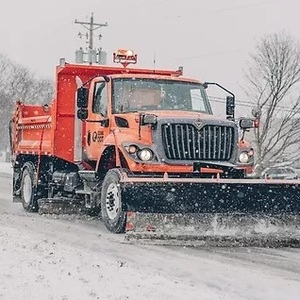Iowa reduces emissions from snow removal with B100 fueled trucks

SOURCE: Optimus Technologies
May 31, 2022
BY Optimus Technologies
This past winter, the Des Moines area got pummeled with over 2 feet of snow, and while most residents stayed bundled inside, 10 Iowa Department of Transportation snowplows were on the roads, clearing snow and cleaning the air. The Iowa DOT is committing to a lower carbon footprint in its state fleet by operating these 10 snow removal and road maintenance trucks with Optimus Technologies’ advanced fuel system technology, powered by 100 percent biodiesel (B100). Over the course of the winter season, these vehicles used over 9,000 gallons of biodiesel and successfully treated almost 55,000 miles of roadway, significantly lowering carbon emissions at the same time. Iowa’s Department of Transportation is the first DOT in the nation to deploy sustainable solutions in its plows, leading the country in B100 adoption as electric alternatives don’t exist and would not be as effective in these applications.
Biodiesel is a cleaner alternative to petroleum diesel and is a readily available, sustainable solution for fleets. Suitable for use in any diesel engine, biodiesel can be adopted by fleets in varying blends from 5 percent biodiesel, or B5, all the way up to 100 percent (B100). Blends above 20 percent biodiesel (B20) can require upgrades in some diesel equipment to ensure compatibility and successful operational performance. Biodiesel is classified as an advanced biofuel by the EPA because it reduces carbon emissions by more than 50 percent; in fact, B100 reduces Scope 1 carbon emissions by over 95 percent compared to traditional petroleum-based diesel fuel.
Advertisement
“The Iowa Department of Transportation is becoming a global leader in carbon reductions while taking the next steps forward toward the state’s sustainability goals,” said Todd Cogdill, fleet manager for the Iowa DOT. “This is coming to fruition as a result of Optimus’ advanced technology coupled with fuels produced right here in Iowa.”
The Iowa DOT is one of the original early adopters of biodiesel in its fleet. For more than 20 years, the Iowa DOT has utilized B20. The Vector System enables Iowa DOT to increase biodiesel usage to 100 percent by eliminating traditional issues associated with higher biodiesel blends, such as gelling, even in sub-zero temperatures. This project is another example of the Iowa DOT demonstrating its forward-looking leadership. In 2020 Iowa DOT launched an initial B100 test project with five upgraded trucks. Due to the success of the original project, Iowa DOT has since placed two additional orders, ordering a total of five new trucks equipped with the B100 technology, bringing the total to 10.
“The Iowa DOT senses the same urgency that we’re seeing globally – municipalities, states, and countries are faced with directives to immediately reduce carbon emissions,” said Colin Huwyler, Optimus’ CEO. “We’re seeing a significant increase in interest for our technology as fleets recognize that options like electric vehicles can’t perform the demanding tasks required in severe-duty applications like snow removal. EVs can’t handle these operations today and I’d guess they likely won’t be suitable for at least the next decade, maybe two. Rather than passing the buck, IDOT is setting the example. With Optimus’ technology and Renewable Energy Group’s biodiesel, IDOT is seamlessly integrating low-carbon solutions today.”
Advertisement
The Iowa Department of Transportation is committed to reducing its carbon emissions but cannot afford to sacrifice the performance of its fleet vehicles. Performance and reliability are especially critical for public-safety operations like snow removal and road maintenance that the residents of Iowa depend on. As Iowa DOT continues to upgrade its fleet for use with 100 percent biodiesel, it is able to leverage existing vehicles and infrastructure to achieve significant environmental and financial benefits.
Related Stories
Keolis Commuter Services, the Massachusetts Bay Transportation Authority’s operations and maintenance partner for the Commuter Rail, has launched an alternative fuel pilot utilizing renewable diesel for some locomotives.
Virgin Australia and Boeing on May 22 released a report by Pollination on the challenges and opportunities of an International Book and Claim system for sustainable aviation fuel (SAF) accounting.
Chevron U.S.A. Inc. on May 15 filed a notice with the Iowa Workforce Development announcing plans to layoff 70 employees at its Ames, Iowa, location by June 18. The company’s Chevron REG subsidiary is headquartered in Ames.
Luxury North Dakota FBO, Overland Aviation—together with leading independent fuel supplier, Avfuel Corp.— on May 19 announced it accepted a 8,000-gallon delivery of sustainable aviation fuel (SAF) on May 12.
May 21 marks the official launch of the American Alliance for Biomanufacturing (AAB), a new coalition of industry leaders committed to advancing U.S. leadership in biomanufacturing innovation, competitiveness, and resilience.
Upcoming Events










